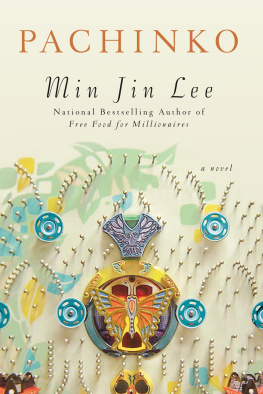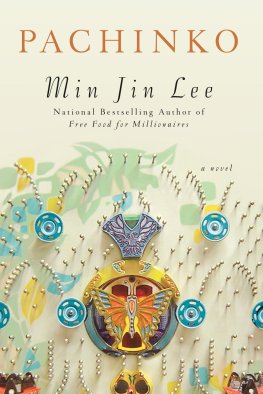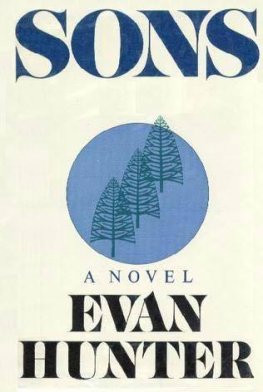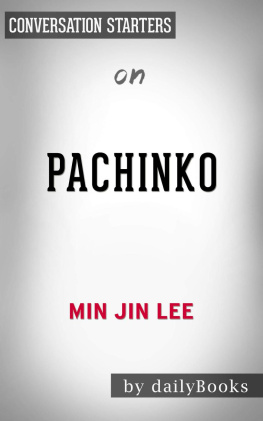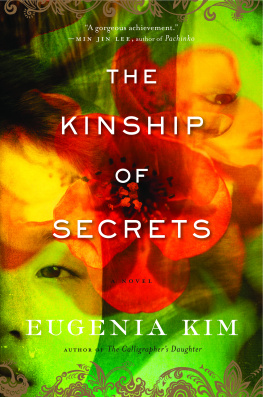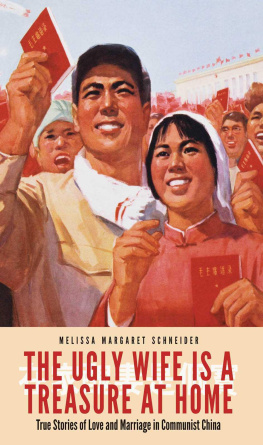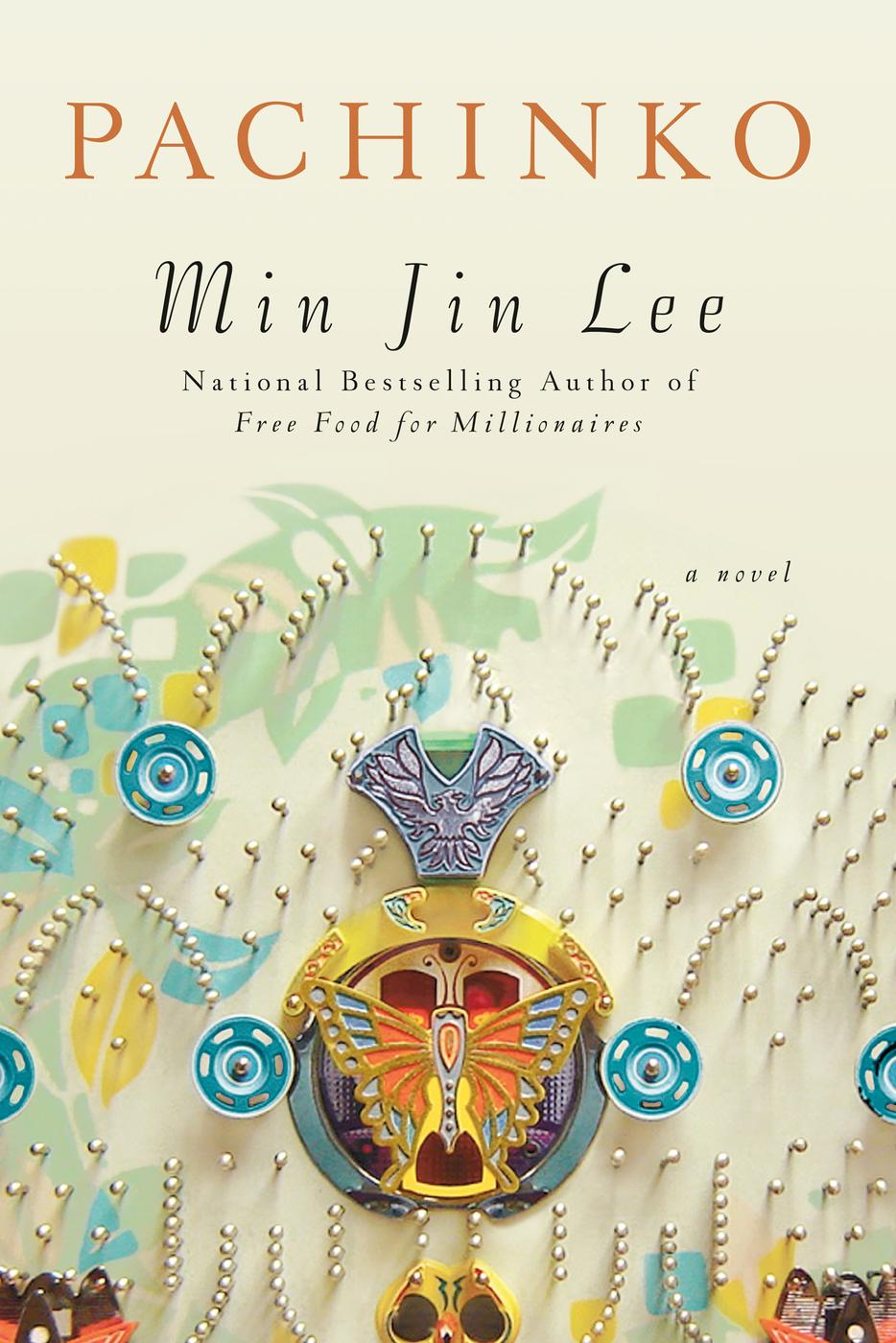Home is a name, a word, it is a strong one; stronger than magician ever spoke, or spirit answered to, in strongest conjuration.
Yeongdo, Busan, Korea
H istory has failed us, but no matter.
At the turn of the century, an aging fisherman and his wife decided to take in lodgers for extra money. Both were born and raised in the fishing village of Yeongdoa five-mile-wide islet beside the port city of Busan. In their long marriage, the wife gave birth to three sons, but only Hoonie, the eldest and the weakest one, survived. Hoonie was born with a cleft palate and a twisted foot; he was, however, endowed with hefty shoulders, a squat build, and a golden complexion. Even as a young man, he retained the mild, thoughtful temperament hed had as a child. When Hoonie covered his misshapen mouth with his hands, something he did out of habit meeting strangers, he resembled his nice-looking father, both having the same large, smiling eyes. Inky eyebrows graced his broad forehead, perpetually tanned from outdoor work. Like his parents, Hoonie was not a nimble talker, and some made the mistake of thinking that because he could not speak quickly there was something wrong with his mind, but that was not true.
In 1910, when Hoonie was twenty-seven years old, Japan annexed Korea. The fisherman and his wife, thrifty and hardy peasants, refused to be distracted by the countrys incompetent aristocrats and corrupt rulers, who had lost their nation to thieves. When the rent for their house was raised again, the couple moved out of their bedroom and slept in the anteroom near the kitchen to increase the number of lodgers.
The wooden house they had rented for over three decades was not large, just shy of five hundred square feet. Sliding paper doors divided the interior into three snug rooms, and the fisherman himself had replaced its leaky grass roof with reddish clay tiles to the benefit of his landlord, who lived in splendor in a mansion in Busan. Eventually, the kitchen was pushed out to the vegetable garden to make way for the larger cooking pots and the growing number of portable dining tables that hung on pegs along the mortared stone wall.
At his fathers insistence, Hoonie learned to read and write Korean and Japanese from the village schoolmaster well enough to keep a boardinghouse ledger and to do sums in his head so he couldnt be cheated at the market. When he knew how to do this, his parents pulled him out of school. As an adolescent, Hoonie worked nearly as well as a strong man twice his age with two well-shaped legs; he was dexterous with his hands and could carry heavy loads, but he could not run or walk quickly. Both Hoonie and his father were known in the village for never picking up a cup of wine. The fisherman and his wife raised their surviving son, the neighborhood cripple, to be clever and diligent, because they did not know who would care for him after they died.
If it were possible for a man and his wife to share one heart, Hoonie was this steady, beating organ. They had lost their other sonsthe youngest to measles and the middle, good-for-nothing one to a goring bull in a pointless accident. Except for school and the market, the old couple kept young Hoonie close by the house, and eventually, as a young man, Hoonie needed to stay home to help his parents. They could not bear to disappoint him; yet they loved him enough not to dote on him. The peasants knew that a spoiled son did more harm to a family than a dead one, and they kept themselves from indulging him too much.
Other families in the land were not so fortunate as to have two such sensible parents, and as happens in countries being pillaged by rivals or nature, the weakthe elderly, widows and orphanswere as desperate as ever on the colonized peninsula. For any household that could feed one more, there were multitudes willing to work a full day for a bowl of barley rice.
In the spring of 1911, two weeks after Hoonie turned twenty-eight, the red-cheeked matchmaker from town called on his mother.
Hoonies mother led the matchmaker to the kitchen; they had to speak in low tones since the boarders were sleeping in the front rooms. It was late morning, and the lodgers whod fished through the evening had finished their hot suppers, washed up, and gone to bed. Hoonies mother poured the matchmaker a cup of cold barley tea but didnt break from her own work.
Naturally, the mother guessed what the matchmaker wanted, but she couldnt fathom what to say. Hoonie had never asked his parents for a bride. It was unthinkable that a decent family would let their daughter marry someone with deformities, since such things were inevitable in the next generation. She had never seen her son talk to a girl; most village girls avoided the sight of him, and Hoonie would have known enough not to want something he could not havethis forbearance was something that any normal peasant would have accepted about his life and what he was allowed to desire.
The matchmakers funny little face was puffy and pink; black flinty eyes darted intelligently, and she was careful to say only nice things. The woman licked her lips as if she was thirsty; Hoonies mother felt the woman observing her and every detail of the house, measuring the size of the kitchen with her exacting eyes.
The matchmaker, however, would have had great difficulty in reading Hoonies mother, a quiet woman who worked from waking until bed, doing what was needed for that day and the next. She rarely went to the market, because there was no time for distracting chatter; she sent Hoonie for the shopping. While the matchmaker talked, Hoonies mothers mouth remained unmoving and steady, much like the heavy pine table she was cutting her radishes on.
The matchmaker brought it up first. So there was that unfortunate matter of his foot and broken lip, but Hoonie was clearly a good boyeducated and strong as a pair of oxen! She was blessed to have such a fine son, the matchmaker said. She deprecated her own children: Neither of her boys was dedicated to books or commerce, but they were not terrible boys. Her daughter married too early and lived too far away. All good marriages, the matchmaker supposed, but her sons were lazy. Not like Hoonie. After her speech, the matchmaker stared at the olive-skinned woman whose face was immobile, casting about for any sign of interest.

